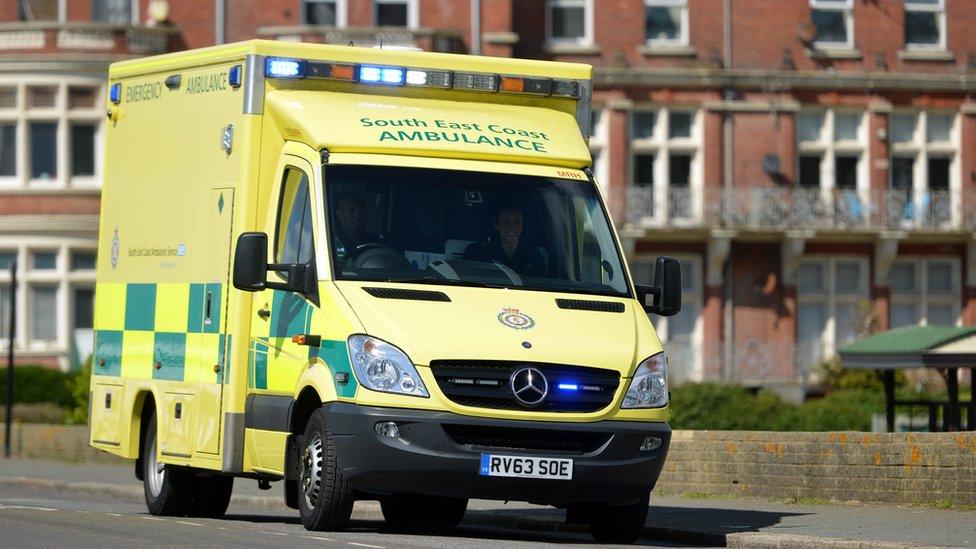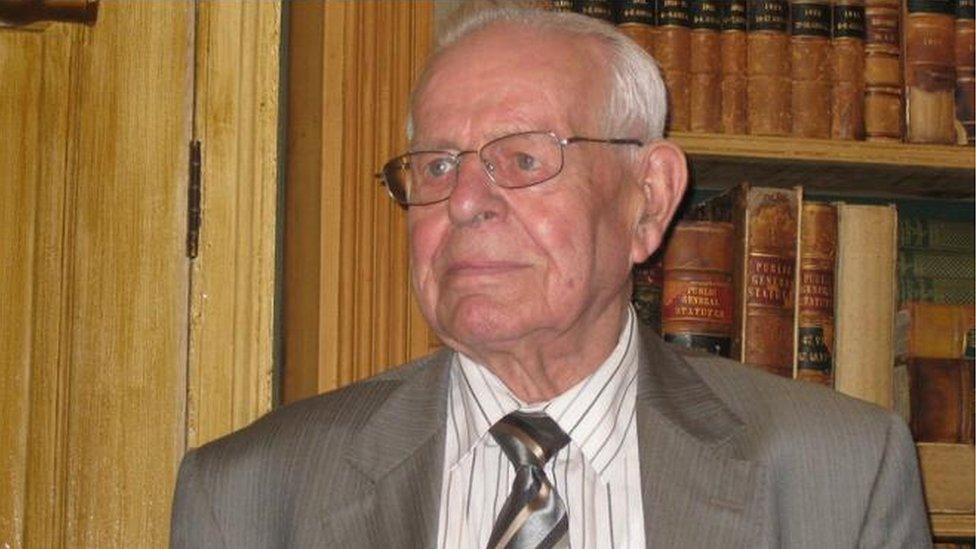'Systemic' failings with 999 call-handling service criticised
- Published

South East Coast Ambulance Service said it had changed its call-handling systems since the three deaths
A woman who died after waiting almost two hours for an ambulance was let down by "systemic" failings with a computer call-handling system, a coroner said.
Daisy Filby, 90, was one of three people who died after delays in receiving care from the South East Coast Ambulance Service (Secamb).
Coroner Alan Craze said a human would have "realised what was going on" and prioritised the calls differently.
Secamb said the system was a national one and that it had made changes.
A spokesman for the ambulance service said: "We are very sorry for the service they received.
"We have listened very closely to the coroner throughout and we are committed to making further improvements where necessary."
'Medical knowledge'
Mrs Filby, from Seaford, died in June 2017 as a result of an "accident contributed to by neglect," Mr Craze concluded at the Hasting's Coroner's Court inquest.
"The lady fell and wedged herself into a position from which neither she nor her daughter, who was very seriously disabled, could get herself out of."
"If an ambulance or anybody with or without medical knowledge had been able to reach this poor lady before her death, the situation would have been different," he added.
Mr Craze said: "The problem is not the actions of any one individual in Secamb Trust.
"The problem is ultimately systemic and at the heart of the call-taking and decision-making system.
"The fundamental problem is you can't now make a computer to make decisions.
"Only a properly trained human being could have listened to those calls and realised what was going on."

Maurice Goodwin had to wait more than three hours for medical assistance
The same inquest, also heard how on 31 August 2017 Barbara Goodwin dialled 999 for her husband Maurice, 87, when she found his catheter full of blood.
She was told an ambulance would not be coming and her husband had been referred to the community team.
When nurses arrived more than three hours later, he had stopped breathing and was pronounced dead.
Mr Craze concluded he died as a result of "natural causes contributed to by neglect".
Special measures
The coroner also concluded Anthony Harding, 84, from Wivelsfield, died of natural causes after waiting for medics for more than an hour.
He collapsed twice on 21 August 2017 after he suffered an aneurysm and his abdominal cavity filled with blood.
Mr Craze said the 999 call at 18:32 was triaged as a minor medical issue and assistance did not reach him until 19:45.
The ambulance service which covers Kent, Sussex, Surrey and north east Hampshire, was put into special measures in 2017 after being rated "inadequate" by the health watchdog the Care Quality Commission.
It was taken out of special measures in August 2019 after being rated "good", but admitted, although it had made "significant improvements", more could be done.

Follow BBC South East on Facebook, external, on Twitter, external, and on Instagram, external. Send your story ideas to southeasttoday@bbc.co.uk.
- Published17 September 2019

- Published16 September 2019
